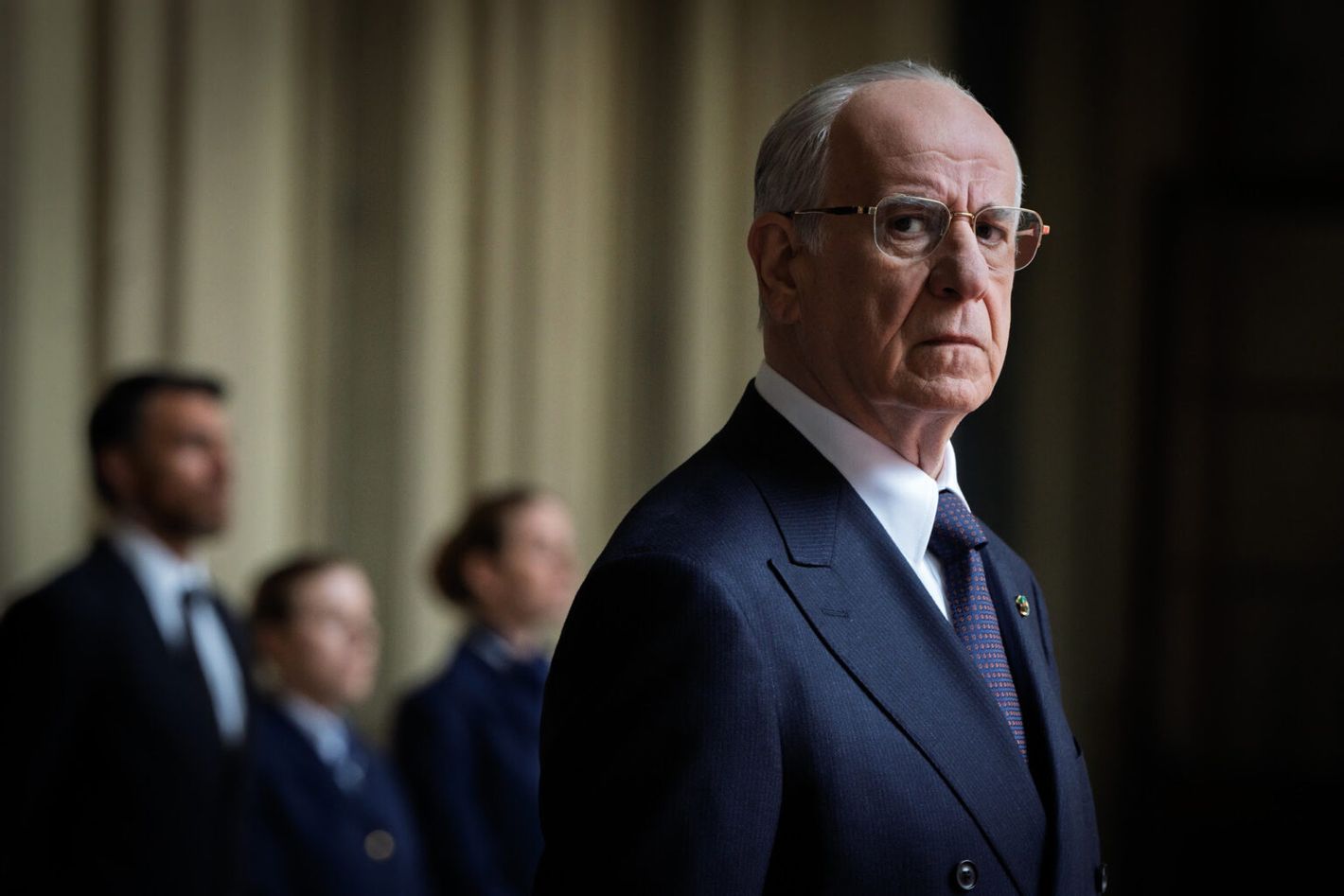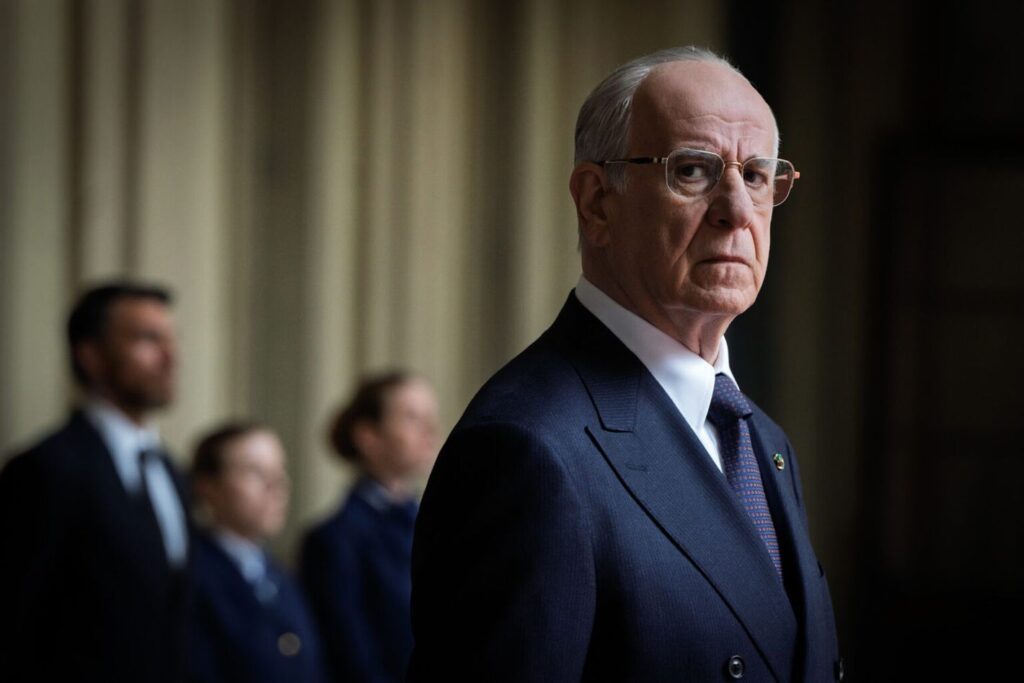
Despite his current reputation as a creator of aggressively aestheticized films, Paolo Sorrentino was once a director of uncommon subtlety. Understated early works such as One Man Up and the masterful Consequences of Love focus on people struggling with static lives and longing to be elsewhere. Later efforts don’t necessarily abandon these themes, but, especially in the wake of his Oscar-winning The Great Beauty, the director gained notoriety as a Felliniesque showman making lush, busy films in which the grotesque and the beautiful jut up against each other. And even as his work has become more personal over the past few years (his two most recent films, the autobiographical Hand of God and the highly metaphorical Parthenope, are odes to his hometown of Naples), Sorrentino hasn’t lost his fondness for the surreal, the garish, the epic, the scandalous, or the big colorful sequences pulsing with music and symbolism. Which makes his latest, La Grazia (Grace), the opening-night picture of the Venice Film Festival, such a surprise: Its reflectiveness and restraint feel like a return to those delicate earlier works, to the Sorrentino of yore. Only in this case, the repressed figure at the movie’s center also happens to be the president of Italy.
Sorrentino has told stories about Italian leaders before — scathing ones, like Il Divo and Loro, loosely historical condemnations of prime ministers Giulio Andreotti and Silvio Berlusconi. This time, the leader, President Mariano De Santis (played by the great Toni Servillo, Sorrentino’s regular collaborator for many years), is entirely fictional, and he’s miles away from the corrupt and driven real-world monsters of those previous films. A moderate and careful jurist who we’re told helped repair the country after a period of turmoil, Mariano is racked with indecision in his final months in office. A bill legalizing euthanasia sits before him, researched and endorsed by his daughter, Dorotea (Anna Ferzetti). He has also been requested to pardon two people imprisoned for murder — one, a woman who killed an abusive husband; the other, a husband who killed a wife with late-stage Alzheimer’s. He doesn’t know how to proceed because his life has always been guided by facts and these are fundamentally moral choices. “You attach too much importance to the truth,” says one of his oldest friends, Coco Valori (Milvia Marigliano in a scene-stealing turn). “It’s a professional quirk among judges,” he responds.
For all that, La Grazia isn’t really about politics or even morality. Mariano spends his days within the cocoon of his office, where the diligent and caring Dorotea watches over his meals and his security guards attend to anything else he may need. He has very little sense of life outside the walls of the presidential palace. He remarks that he doesn’t really know his kids, even though he loves them. His adored wife, Aurora, died some years ago and he desperately misses her, but even she remains a mystery to him: We learn she had an affair 40 years ago and Mariano continues to be obsessed with trying to find out who her lover was. He has his suspicions set on his justice minister, Ugo Romani (Massimo Venturiello), another old, old friend. Jealousy isn’t really what drives Mariano, however; rather, it’s an inability to deal with uncertainty, with the beautiful unknowability of life. We’re told he once wrote a 2,046-page guide to the legal system. He knows everything about the law and almost nothing about life.
This is a regimented world driven by ritual and propriety and a fear of seeming out of step. And Sorrentino shoots it as such — all dark shadows and precisely composed shots. The people at times seem as still as the paintings and statues that line the corridors and walls. Even when the director indulges his wilder side, it’s in service to this idea. One bravura slow-motion sequence shows the elderly Portuguese president arriving for a state visit and getting caught in a sudden thunderstorm as he slowly walks along the red carpet laid out for him at the doors of the presidential palace. Mariano stands there, unable to break decorum and help him. The honor guard stands to the side, fixed in their positions. The Portuguese president struggles against the rain and wind, and he finally collapses when the red carpet flips over after one particularly bad gust. Everybody’s so stuck in their roles that no one can help the man; they all stand there and watch, barely moving a facial muscle. Sorrentino being Sorrentino, he pairs this slow-motion scene with a techno beat — as if it were a climactic action sequence. To be fair, it’s probably the most dramatic thing that happens in La Grazia, a movie that turns its maddening submersion into an artistic virtue.
“Who owns our days?” is a constant refrain in the film. Mariano finds himself trying to figure out what he’ll do once he leaves office. He’ll supposedly finally be free, but what use is freedom at his age? This is more than a typical “seize the day” story, however. Sorrentino is very good at presenting us with images that seem to express something quite basic and then finding ways to complicate the symbolism. In perhaps the movie’s most haunting moment, Mariano is connected to an Italian astronaut in space. He’s told there’s something wrong with the signal and the man cannot hear or see him. So Mariano decides to just watch the astronaut hovering onscreen in zero gravity. In another moment of absurdist Sorrentinian beauty, the astronaut looks at a laptop and starts to cry. A single teardrop becomes a tiny ball and floats away. Now, the astronaut begins to laugh. Nobody knows why this man is laughing or crying, while Mariano fixates on the man’s single floating tear, lovely and precise, its purpose and origin a mystery. The unknowability of life is beautiful, but so too is our desire to know. To be human, La Grazia seems to say, is to fight and lose against uncertainty, and then to fight and lose some more.
Paolo Sorrentino’s latest, La Grazia (Grace), feels like a return to the director’s delicate earlier works.

































































